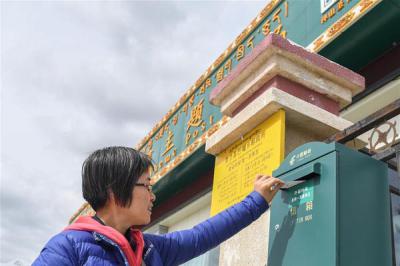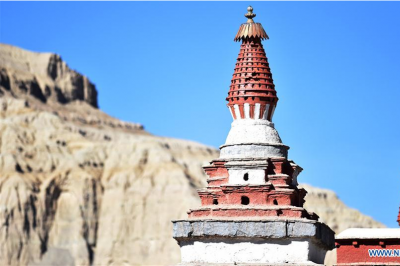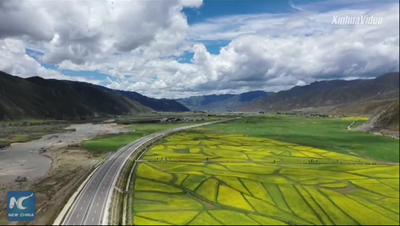Tibet and BRI
(USA) YA WEI LIU
Tibet, like Xinjiang and other western provinces of China, are part of the Belt & Road Initiative in that they are adjacent to the countries that are on the belt of silk road economic development. Therefore, it can play a very important role in the eventual success of the BRI. Leaders in Tibet should have a clear understanding what unique role Tibet can play in advancing BRI. Tibet s essentially different from all other provinces in China and it is less developed. Then, what is the Tibetan uniqueness? First, two countries connected to Tibet are most important on the BRI. It is Pakistan and India. China-Pakistan Economic Corridor is a signature BRI project. India has not officially joined BRI. Due to its geographical position, Tibet can play a role that no other Chinese province can play. Engaging in people-to-people diplomacy and convince peoples in India and Pakistan that BRI is win-win plan that will benefit all countries should be the top priority of Tibet. Second, Tibet occupies a important position in the global arena because of Tibetan people, its religion and culture and the growing international fascination with it. How Tibet is perceived by the Western world has a huge impact on the international perception of China as a whole. If Tibet can project itself as a land of cultural harmony and religious toleration, it will make BRI more appealing to countries that are still hesitant to endorse BRI. Third, Tibet will face a challenge in the coming years. The successful handling of this challenge will be crucial to the stability and prosperity of Tibet. Obviously, Beijing is the decision maker in the overall response but the connections between Tibetans inside and outside China are the key in solving the Tibetan-Han relationship. Fourth, BRI needs talents with special skills. Tibetans with required skills can play an important role in this endeavor. It is up to the Tibetan government, in collaboration with other cities in China, to design an effective human resources strategy so that Tibetans can receive the education and training that are needed. In a nutshell, Tibet’s role in making BRI a success lies largely in manufacturing soft power for China. BRI does not lack hard resources like capital, technology and manpower but it does require a special dimension that can be used to convince the international community it is a sincere and earnest step toward realizing the so-called community of shared values for the mankind. In this area, Tibet (and Xinjiang) can play a crucial and indispensable role.
YA WEI LIU, USA
Director of the China Program of The Carter
Center,USA
|
- Home
- News Tibet |Exclusive |China |World |Other Tibetan-Inhabited Area |Tibet through the Eyes of Foreigners |Related News
- Documents White Papers |Others
- Photo Politics |Economy & Society |Culture & Religion |Human & Nature |Beautiful Tibet |Other Tibetan-Inhabited Area |Exchanges |Related
- Video News |Documentary |Micro-Video |Entertainment
- Art
- Tourism
- In Focus
- About Tibet






